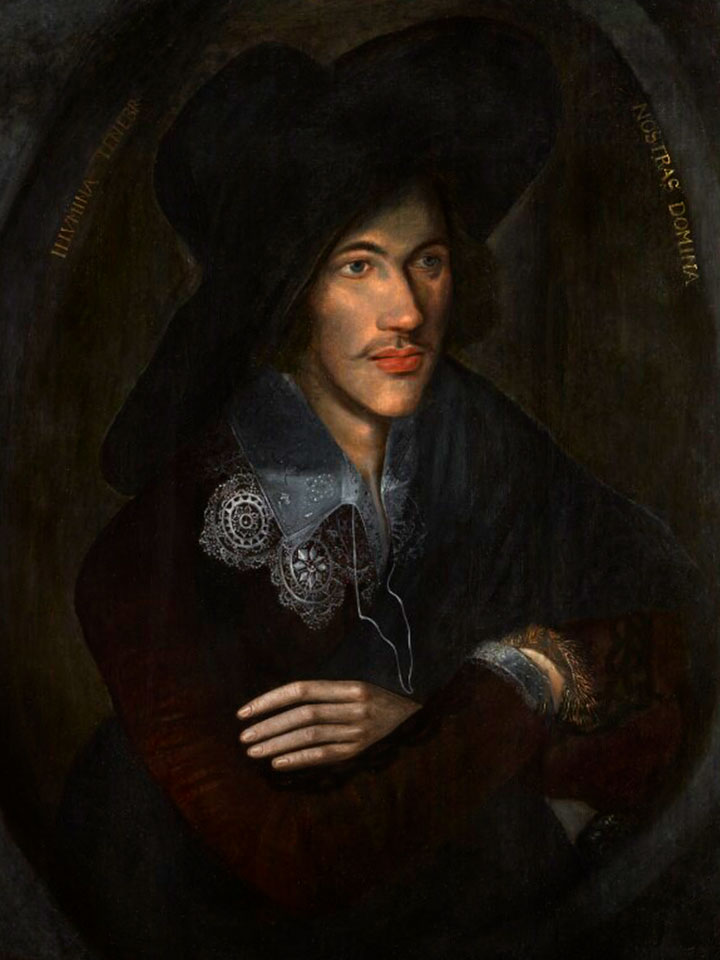John Donne
Birth Name: John Donne
Born: January 22, 1572 in London, England
Died: March 31, 1631 in London, England
Time Period: Renaissance
Expertise: Lawyer, Letter Writer, Orator, Poet, Politician, Satorist, Sermonist
Known For: Death Be Not Proud, Death's Duel, Go and Catch a Falling Star, The Canonization

Quotes
Interesting quotes by John Donne
“Art is the most passionate orgy within man’s grasp.”
“I observe the physician with the same diligence as the disease.”
“But I do nothing upon myself, and yet I am my own executioner.”
“I am two fools, I know, for loving, and for saying so in whining poetry.”
“Humiliation is the beginning of sanctification.”
ADVERTISEMENT
Bio
A brief biography of John Donne
John Donne was born in London, England on January 22, 1572. He was the third born out of six children, into a recusant family—those who remained loyal to the Pope and Roman Catholic Church and didn’t attend the prodestant Church of England, an illegal act. Donne is considered the most distinguished metaphysical poet of all time. In 1688, John Dryden—England’s first Poet Laureate—professed about Donne, “He affects the metaphysics, not only in his satires, but in his amorous verses, where nature only should reign; and perplexes the minds of the fair sex with nice speculations of philosophy, when he should engage their hearts, and entertain them with the softnesses of love.”
In 1576, when Donne was four years old, his father died, leaving his mother to care for him and his five siblings. His mother, Elizabeth Heywood, was the daughter of John Heywood, playwright and poet. Up until John Donne was eleven, he was privately educated. He then continued his education at Hart Hall and was later accepted to University of Cambridge. Unfortunately, Donne didn’t graduate with a degree because he refused to take the Oath of Supremacy—swearing allegiance to the Church of England—which was mandatory for graduation. However, in 1591, he attended the Thavies Inn Legal School where he received a law degree.
In 1592, John Donne was entered into the Lincoln’s Inn, one of the four Inns of Court—a professional association for barristers in England. At about the age of twenty-five, Donne was made chief secretary to the Lord Keeper of the Great Seal, Sir Thomas Egerton, who was authorized the use of the Great Seal of England to appove state documents. Over the course of four years, Donne would fall in love with Egerton’s niece, Anne More. They were covertly married in 1601, hiding it from Anne’s uncle and father. Their secret would soon be discovered, sending John Donne to Fleet Prison, along with a priest, Samuel Brooke, and the witness to the ceremony. Effectively, Donne lost his position as chief secretary and was separated from his love. Writing to his wife, Anne, he wrote, “John Donne, Anne Donne, Un-done.” However, Donne was freed from Fleet Prison once the marriage proved to be authentic. Later on, he would have the priest and witness released as well. It wasn’t until 1609 when Donne settled his differences with his father-in-law and was granted his wife’s dowry.
Upon Donne’s release from Fleet Prison, the couple lived in a quaint house of Anne’s cousin, in Pyrford, Surrey, until 1604. By the spring of 1605, they relocated to another small house outside of London where Donne worked as a lawyer, though he earned little money for his growing family. John and Anne had a total of twelve children, with an addtional, unfortunate two who were still-born. Unfortunately, three of their children would die before they reached ten years of age. The death of his young children pushed John to the brink of suicide and he wrote, “...the death of a child would mean one mouth fewer to feed”. During this dark time, John Donne would write his defense of suicide, Biathanatos, however he did not publish it. In 1617, Donne’s wife, Anne, would die during childbirth. Donne wrote his 17th Holy Sonnet, where he lamented over their love and loss.
Prior to his wife’s death, in 1615, he was presented with an honorary doctorate from Cambridge University, making him a Royal Chaplain within the year. That was followed with him becoming a Reader of Divinity at Lincoln’s Inn, where he would also work in the chapel as a minister until 1622. A year before that, John Donne would become Dean of St. Paul’s—a superior position in the Church of England. This freed him of all financial insecurity. While Donne was dean at St. Paul’s, his daughter Lucy died. Following her death, John became severely ill. In 1624, during his recovery, he wrote and published Devotions upon Emergent Occasions, a book containing meditations and prayers in regard to health, pain, and illness. This book contains the familiar phrase, “No man is an island.” A month before his death, in February of that year, Donne would execute his most famous sermon, Death’s Duel, before King Charles I—gaining him further reputation as an effective preacher.
John Donne died on March 31, 1631 in London, England. He was buried at St. Paul’s Cathedral. The memorial statue that was placed there is one of the few to endure the Great Fire of London in 1666. John Donne is honored as a priest in the calendar of the Church of England. In 2012, a bust was put on display outside in the churchyard of St. Paul’s Cathedral to commemorate him.
ADVERTISEMENT
Works by John Donne

Download free John Donne books. Listen to John Donne audiobooks.

ADVERTISEMENT
External Links for John Donne
John Donne on Wikipedia
https://en.wikipedia.org/wiki/John_DonneJohn Donne on Wikisource
https://en.wikisource.org/wiki/Author:John_DonneADVERTISEMENT
Other Authors

See other authors of the Renaissance period

